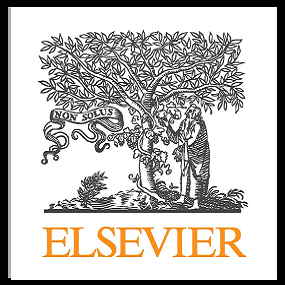دانلود رایگان مقاله مزیت رقابتی مکمل: چارچوبی برای تصمیمات استراتژیک – سال 2021


مشخصات مقاله:
عنوان فارسی مقاله:
مزیت رقابتی مکمل: چارچوبی برای تصمیمات استراتژیک
عنوان انگلیسی مقاله:
Complementor competitive advantage: A framework for strategic decisions
کلمات کلیدی مقاله:
مکمل ها، اکوسیستم های سکو، ارزش شبکه، دارندگان سکو، کاربران نهایی
مناسب برای رشته های دانشگاهی زیر:
مدیریت
مناسب برای گرایش های دانشگاهی زیر:
مدیریت کسب و کار، مدیریت استراتژیک
وضعیت مقاله انگلیسی و ترجمه:
مقاله انگلیسی را میتوانید به صورت رایگان با فرمت PDF با کلیک بر روی دکمه آبی، دانلود نمایید. برای ثبت سفارش ترجمه نیز روی دکلمه قرمز رنگ کلیک نمایید. سفارش ترجمه نیازمند زمان بوده و ترجمه این مقاله آماده نمیباشد و پس از اتمام ترجمه، فایل ورد تایپ شده قابل دانلود خواهد بود.
فهرست مطالب:
Abstract
Keywords
1. Introduction
2. Theoretical background
3. Complementor interdependencies with end users
4. Complementor interdependencies with platform owners
5. Complementor interdependencies with other complementors
6. Discussion and future research agenda
6.1. Theoretical implications
6.2. Future research agenda
Declaration of Competing Interest
Acknowledgements
References
قسمتی از مقاله انگلیسی:
1. Introduction
The emergence of digital platform ecosystems is making the role of complementors increasingly relevant (Inoue, 2019; Parker, Van Alstyne, & Jiang, 2017). Platform ecosystems are based on modular technologies that enable supermodular complementarities both in production and in consumption (Jacobides, Cennamo, & Gawer, 2018). For example, Android complementors can identify and resolve operating system bugs, and offer a wide variety of features to end users through a large portfolio of apps. In this respect, platform ecosystem innovation relies on building a network of external parties, known as complementors, which create value on the platform (Bogers et al., 2017). The platform ecosystem approach has consequently facilitated the emergence of new and profitable complementary product markets, such as the mobile apps market, a massive market which generates more than 70 billion dollars worldwide (Statista, 2018). Besides profits, the growth of platform ecosystems also entails fierce competition, and this makes it impossible for the majority of firms to build and sustain a competitive advantage (Cusumano, Gawer, & Yoffie, 2019b; Kapoor & Agarwal, 2017). The literature has extensively analyzed the sources of competitive advantage in platform ecosystems from different perspectives (McIntyre, Srinivasan, & Chintakananda, 2020). Research into market-based standardization has traditionally explained the competitive advantage of a technology by highlighting the support of different stakeholders (Gallagher, 2012; van de Kaa, van den Ende, de Vries, & van Heck, 2011). Specifically, technology dominance in standard battles depends on boosting network effects by attracting adopters (Katz & Shapiro, 1986, 1994). Thus, network value represents a key driver of technology adoption. Subsequently, research on platforms has highlighted the fact that different agents depend on and affect each other (de Reuver, Sørensen, & Basole, 2018; Wan, Cenamor, Parker, & Van Alstyne, 2017). In this respect, different research streams on ecosystem have analyzed how actors organized around a firm, an innovation, and a platform (i.e. business, innovation, and platform ecosystems, respectively) (Jacobides et al., 2018). The platform ecosystem literature has identified interdependencies among three different type of agents: platform owners, complementors and end users (Cennamo, 2019; Eisenmann, Parker, & Van Alstyne, 2006; Gawer, 2014; Thomas, Autio, & Gann, 2014; Tiwana, 2014). An important part of the research on platform ecosystems has focused on how platform owners attract a large installed base of end users and complementors, in order to boost network effects and hence influence platform adoption (Gretz, 2010; McIntyre & Srinivasan, 2017; Molina-Castillo, Munuera-Aleman, ´ & Calantone, 2011; Schreieck, Wiesche, & Krcmar, 2016; Zhu & Iansiti, 2012). In sum, the interdependencies among ecosystem agents are a key source of competitive advantage for the platform. However, a platform-centered approach usually overlooks the complexity of complementor competitive advantage.



